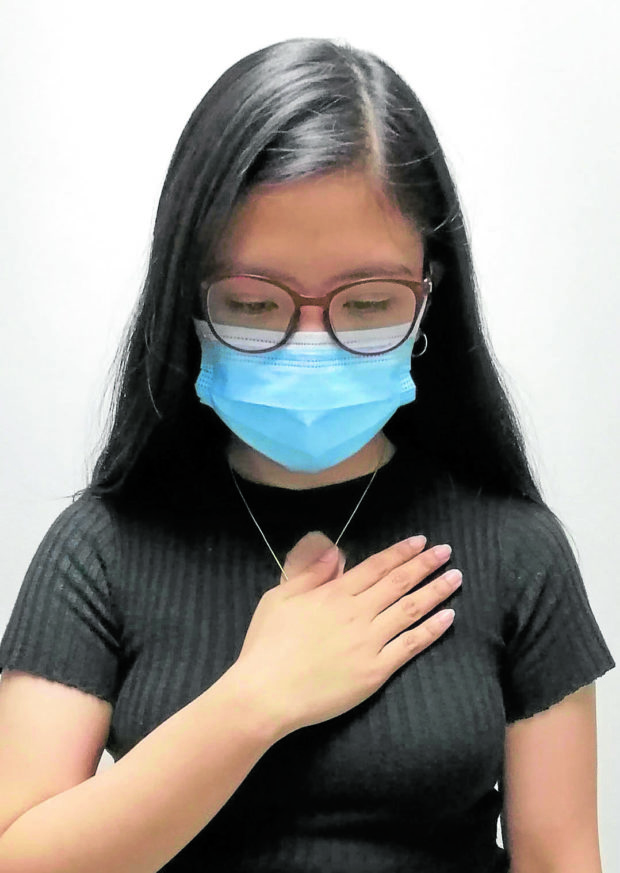
NO CONTACT How to do it, according to House Bill No. 8149.
MANILA, Philippines — How do we greet each other in the time of coronavirus pandemic?
Place palm of the right hand over the chest as head is lowered and eyes are shut or looking down, that is, if the bill the House of Representatives approved on Tuesday finally becomes a law.
The new and no-contact Filipino way of greeting prescribed by House Bill No. 8149 got the chamber’s nod as the Philippines deals with the COVID-19 threat.
Voting 212-1-1, the House approved the measure, or the “Bating Filipino Para sa Kalusugan Act,” on third and final reading. The proposed legislation was originally filed as House Bill No. 7333 by Marikina Rep. Bayani Fernando.
The proposed law called on the state to “set standards of social contact, such as a safe and proper gesture to express and convey respect, goodwill, or praise” to protect the health and promote the well-being of every Filipino.
Well-meaning, but…
According to Fernando, the traditional handshake practiced by Filipinos is a health risk.
“The medical profession has established that the traditional, well-meaning and innocent gesture of handshake transmits communicable diseases and is a risk to one’s health,” he said in the bill’s explanatory note.
Under the measure, a new and safe gesture of respect and goodwill would be observed through “gracefully laying the palm of the right hand over the center of one’s chest while simultaneously lowering the head, with eyes either closed or cast down.”
Fernando said the relevance of the measure “becomes more pronounced as we are now suffering from a global health crisis due to the novel coronavirus pandemic.”
The bill, however, will not impose punishment on people not practicing the new gesture.
Solo parents
On Tuesday, the lawmakers also approved the grant of additional benefits to solo parents in the country on third and final reading of House Bill No. 8097.
Voting 208-0-0, the chamber passed the measure, which amends Republic Act No. 8972, or the Solo Parents Welfare Act of 2000, and gives a solo parent or a person earning less than P250,000 yearly a 10 percent discount and exemption from the value-added tax on the basic necessities of his or her child, such as clothing, milk, food and medicine.
It also grants solo parents at least seven days of paid parental leave if they have been employed in their workplaces for at least six months.
Moreover, it guarantees full scholarship to solo parents’ children and puts priority on their other children in the government’s educational programs.
If enacted, the bill would mandate the government to give priority to solo parents in livelihood, training and poverty alleviation programs, and in seeking treatment in government hospitals and other medical facilities.